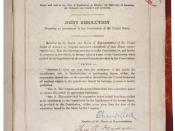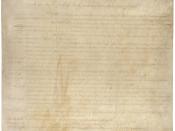Nobody is forcing people to read a book and believe its viewpoints, so why ban a book when all it does is deny a person's right to read? The First Amendment to the U.S Constitution allows freedom of speech and press because they are a human's moral rights. A human also has the moral right to read whatever they choose, not what others decide is proper or not.
Book banners may believe they are protecting themselves, their families, and their communities from evil ideas and inappropriate conceptions; they are happy with only books that teach the values and ideas they believe in. However, this results in a censorship that prevents people from reading what they want to read and what they have a right to read.
The Harry Potter series, a popular collection of fantasy books, has attracted more people demanding its removal from classrooms, school libraries, and reading lists than any other books in 1999.
Religious people argue that these books promote the religion of witchcraft and lure children into the occult, but if all books containing religion or magic were banned, then a good portion of books would be taken off the shelves. Censoring our literature is a complete violation of the First Amendment.
Ban supporters often fear that a book will influence readers in a negative way. While this fear may seem reasonable, there are bans based on this concern that are completely ridiculous. People restrict Huckleberry Finn because it promotes racism by using the term "Nigger." Readers of this book would know fully well, however, that it condemns racism and bigotry. The author's intent was to portray the ideas and truths, not the type of language used. The First Amendment declares a freedom of the press, and writers should be able to write their stories...


